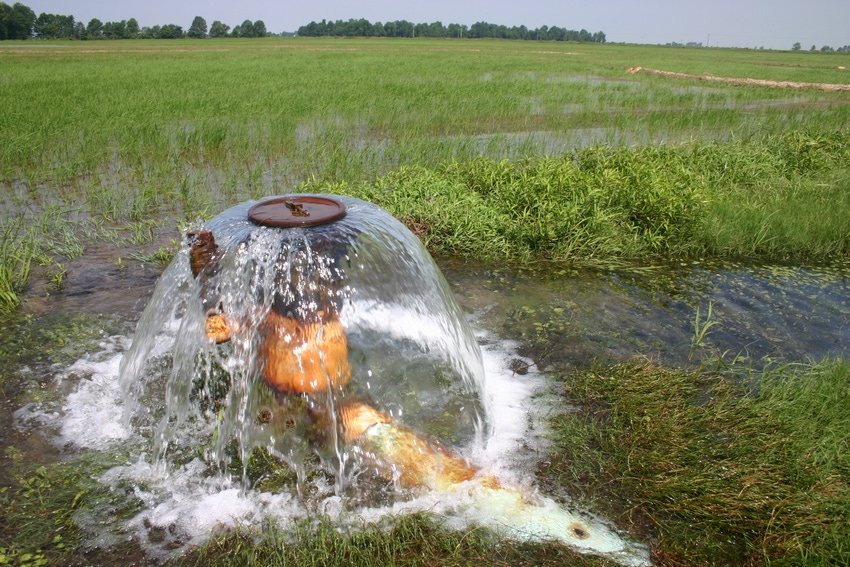
On April 3, the EPA sent a revised Waterways of the U.S. (WOTUS) proposed rule to the Office of Management and Budget for review. Three days later, Gina McCarthy, EPA Administrator, and Jo-Ellen Darcy, Assistant Secretary of the Army (Civil Works), posted an update regarding the controversial rule. The pair were keen to let critics know they’d heard their complaints.
“A year ago, our agencies released the draft Clean Water Rule. Since then, we’ve held more than 400 meetings across the country and received more than one million public comments from farmers, manufacturers, business owners, hunters and anglers, and others. The input helped us understand the genuine concerns and interests of a wide range of stakeholders and think through options to address them. In the final rule, people will see that we made changes based on those comments, consistent with the law and the science. We’ve worked hard to reach a final version that works for everyone – while protecting clean water.”
While the new rule language hasn’t been released, among other things McCarthy and Darcy claim it will better define “how protected waters are significant.” The rule will define “tributaries more clearly,” provide “certainty in how far safeguards extend to nearby waters” and focus “on tributaries, not ditches.” They also say the rule will preserve “exemptions for agriculture.”
A day after the EPA update, Delta Farm Press spoke with Leslie Rutledge, Arkansas Attorney General. Rutledge recently testified before the Senate Agriculture Committee about the proposed rule.
“Having grown up on a cattle farm I understand firsthand how this proposed rule can have an impact on Arkansas farmers and ranchers,” said Rutledge. “I know they’re the first environmentalists and they want to follow the law and protect the land. I appreciate the work they do.”
Were you aware of the Waterways of the U.S. proposed rule prior to becoming AG?
“Over the last couple of years as I traveled around the state, I heard from farmers and, particularly, from members of Farm Bureau about their concerns with the WOTUS rule. They are very worried about the impact it will have on Arkansas and our economy because agriculture is such a large part of it.
“When I took office in January, looking at some of the EPA proposed rule-making was a priority of mine.”
Definitions
On the EPA’s proposed definition of “tributary” and how that pertains to “significant nexus”…
“The EPA and Army Corps of Engineers are attempting to define WOTUS through regulation. It’s too broad and those broad terms have previously been struck down by the U.S. Supreme Court.
“Most recently, that occurred in a case called ‘Rapanos’ which was a plurality decision, not a majority. Justice Kennedy spoke about a ‘significant nexus’ test. Essentially, he said (to be regulated) water must have a significant nexus to a traditionally navigable waterway.
“The agencies are attempting to expand the definition of ‘tributary’ to include any water that contributes flow either directly or through another source. That goes beyond Justice Kennedy’s holding, who said the Clean Water Act wouldn’t apply to drains, ditches and streams remote from navigable water. The agencies are going much further than the Rapanos case intended, much further than what we’ve seen before. That leaves a reasonable person guessing at its meaning.”
What would it mean to the state if the proposed rule went through?
“If it went through, potentially all the waters in Arkansas could fall under this expanded, overreaching definition of WOTUS.
“Agriculture provides approximately $20 billion each year to the state. One in every six jobs is due to agriculture. The state is first in rice production, third in cotton, fifth in timber, and tenth in soybeans and grain.
“So, what you’d see is farmers not being able to farm or maintain their ability to do so. Future generations wouldn’t want to farm because of all the regulatory burdens. Therefore, it would impact not only jobs in Arkansas but the supply of food around the world and across America in particular.”
Recourse?
If the federal government goes through with the rule would there be any recourse at the state level?
“On the state level, we already have conservation districts in the counties. I encourage people to speak with people in the districts, to talk to the legislature about what the districts do, about the Arkansas Department of Environmental Quality.
“From the (Attorney General’s) office if there’s an opportunity to address any legal challenges we might have against this overreach. The state is already regulating (water).
“I encourage your readers to contact Arkansas Sen. Boozman – who sits on the Senate Agriculture Committee – and Sen. Cotton and their members of Congress. Tell them about the impact the rule would have on their ability to farm, on their ability to keep their land free from the burden of regulations.”
Have you been in contact with the other Mid-South attorneys general about this? Are they equally concerned?
“Absolutely. In the coming days, I’ll be visiting with attorneys general from across the country – Mississippi, Missouri, Texas, Alabama, Georgia. We stay in relatively close contact as these issues arise because they affect all of us equally. While the land and soil may not be the same, the impact and harm these regulations can cause are.”
About the Author(s)
You May Also Like




